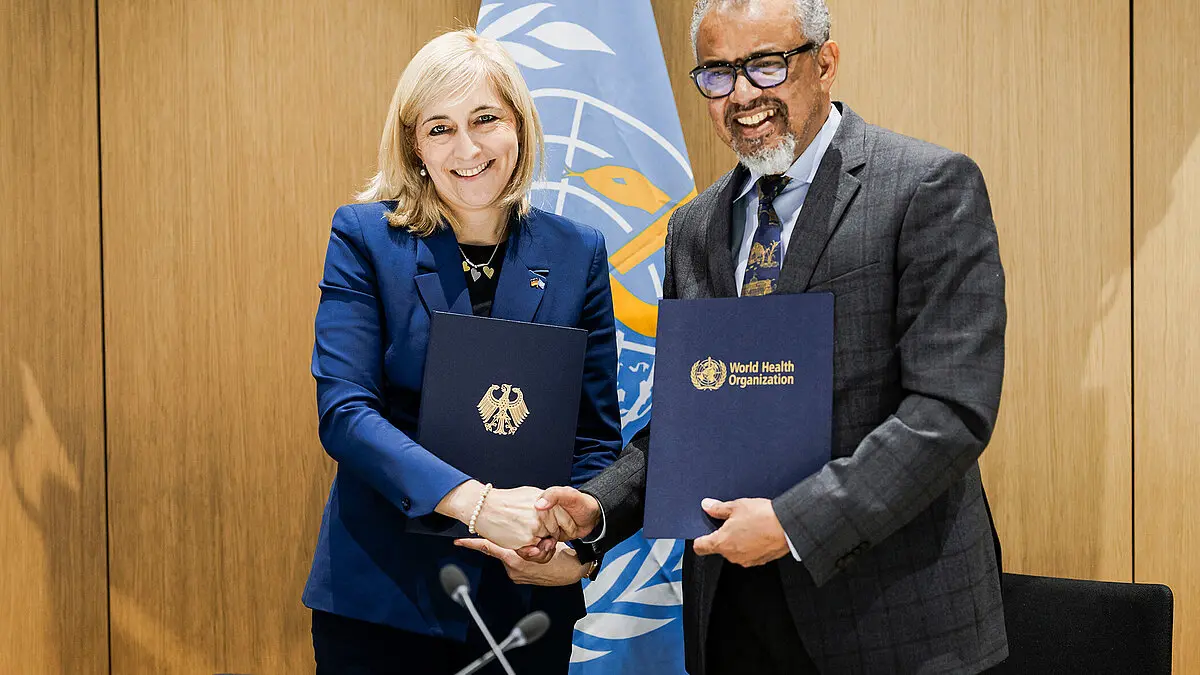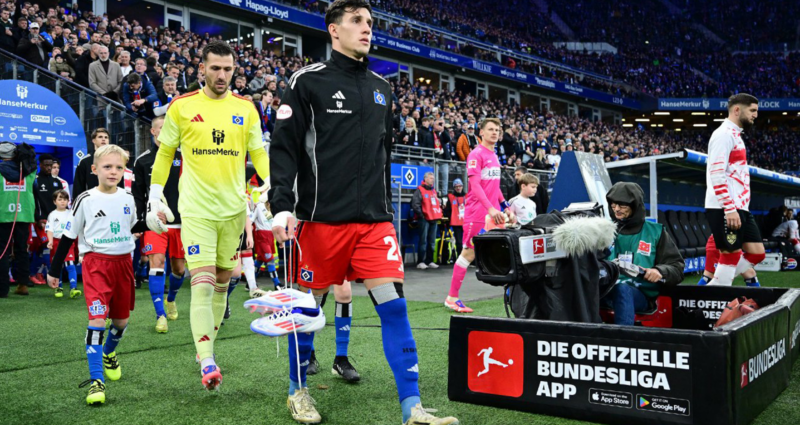
Monday, May 26, 2025
Germany invests €10 million in WHO – Boost for Pandemic Agreement
Germany once again underlines its role as a driving force in global health policy. Federal Health Minister Nina Warken announced an additional €10 million in funding for the World Health Organization (WHO) on the eve of the World Health Assembly (WHA) following a meeting with WHO Director-General Dr. Tedros Adhanom Ghebreyesus in Geneva.
The funding aims to support internal reforms within the WHO, which gained urgency following the temporary withdrawal of the United States from the organization. Germany had already contributed €2 million in April. In total, Germany’s contributions to the WHO for 2024/2025 amount to USD 323 million.
A central item on the WHA agenda, taking place from May 19 to 27, 2025, is the international pandemic agreement, which is expected to be adopted through a resolution early next week. The agreement seeks to establish binding international cooperation on pandemic prevention, preparedness, and response.
Minister Warken emphasized: “The upcoming adoption of the international pandemic agreement shows what WHO member states are capable of: protecting people’s health worldwide through stronger cooperation.”
WHO Director-General Dr. Tedros expressed his gratitude: “I thank Germany for its sustained trust and commitment to global health […] With Germany as a partner, we will continue to support countries, protect communities, and build a stronger, better-prepared global health system for the future.”
Key elements of the pandemic agreement:
- Prevention & One Health Principle:
For the first time, an international treaty recognizes the interconnection of human, animal, and environmental health. Enhanced surveillance, lab safety, and protection for healthcare workers are among the priorities. - PABS – Pathogen Access and Benefit-Sharing:
Pathogens and related data will be shared to facilitate medicine and vaccine development. In return, pharmaceutical companies will donate 10% of their production and sell up to another 10% at reduced prices, particularly for low-income countries. - Technology Transfer:
Technology transfer will be encouraged on a voluntary basis, balancing innovation and competitiveness. - Sovereignty:
The agreement respects the sovereignty of member states, clearly stating that decisions on responses to health crises remain the responsibility of individual nations.
Through this initiative, Germany is not only supporting WHO reforms but also sending a strong signal for international solidarity and global health equity.







